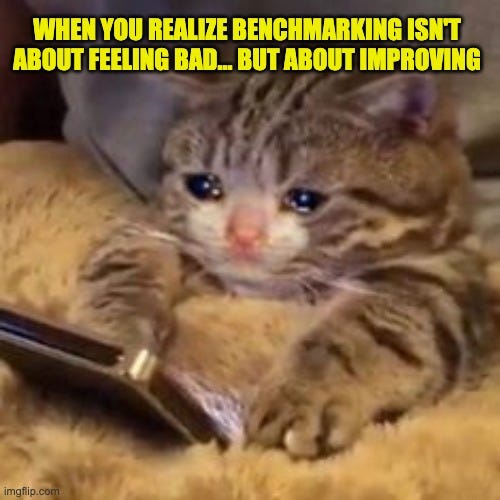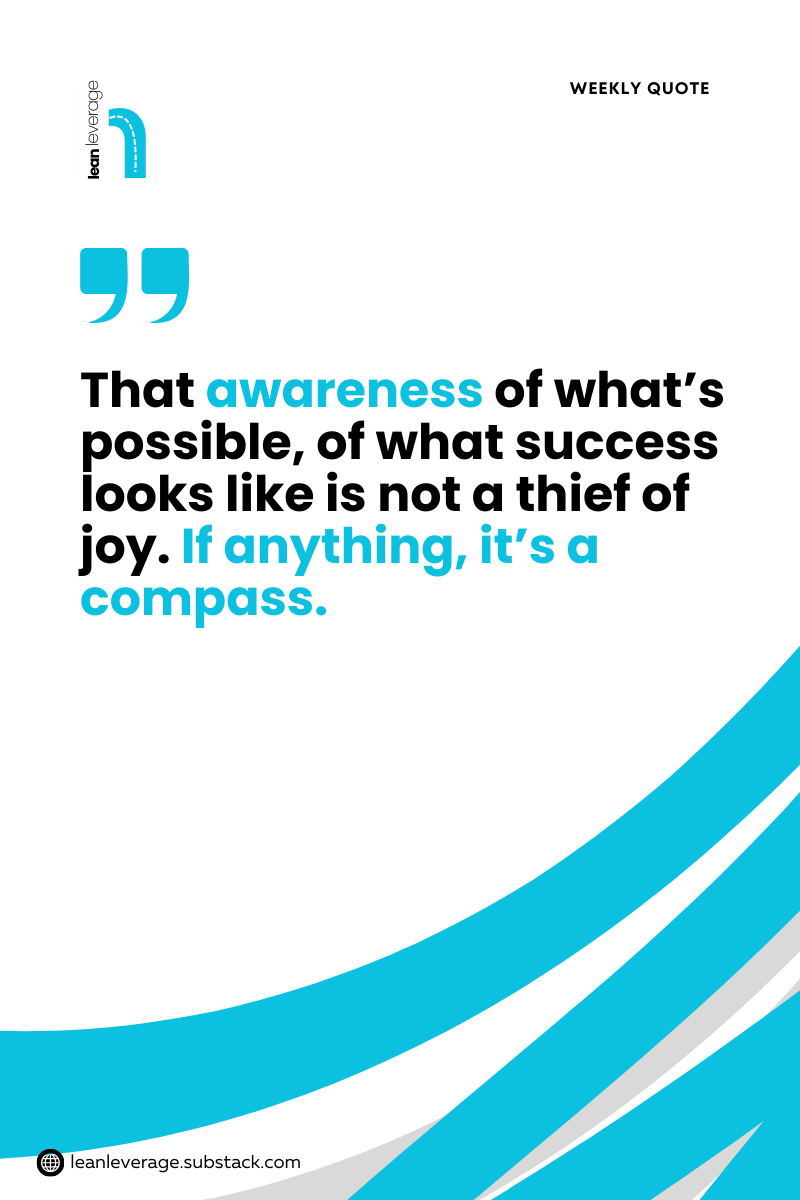Comparison DOES NOT have to be the “thief of joy”.
Other people’s success is not your enemy. It’s data.
Hey friend,
For as long as I can remember, we’ve been fed this well-meaning but slightly misleading advice:
"Don’t compare yourself to others; only to your previous self."
"Comparison is the thief of joy."
If I had a Naira for every time I heard that, I’d have built my first house in Banana Island by now.
You usually hear these words when you’re underperforming in a certain area—when your mates are securing dream jobs, buying cars, or casually announcing their relocation to Canada, while you’re still contemplating if Indomie with egg is too extravagant for dinner.
Before I got my first job, my immediate older sister (let’s call her Tee—some of you know her), used to tell me these words while patting my shoulder, eyes filled with sympathy whilst reaching for a hug. And honestly? For a brief moment, it worked. I felt better. But once that temporary comfort faded, reality slapped even harder.
I needed to sit up.
So, I looked at my friends, my former classmates, my peers. Not out of envy, but to understand where I ought to be. That awareness of what’s possible, of what success looks like—is not a thief of joy. If anything, it’s a compass.
And in the world of business transformation, we have a name for this: Benchmarking.
Benchmarking: The Guide to Growth
I get what my sister meant. You shouldn’t obsessively compare yourself to others in a way that diminishes your self-worth. But should you remain blind to what others have achieved? No, I wouldn’t say that — Rárá o, mi ò so béè o!
In Continuous Improvement, Benchmarking is the practice of measuring your performance against industry leaders, competitors, or best practices to see how you stack up. It’s not about feeling like rubbish—it’s about setting the right targets and knowing what’s realistically attainable.
Think about it. If you’re training for a marathon and you don’t check what elite runners clock in at, how do you know what “fast” even means? If you’re building a business but have no clue what industry standards are, how do you know if you’re ahead or painfully behind?
You need to see what’s possible.
What Are Benchmarks?
Benchmarks are measurable standards (in terms of quality, cost, time, or efficiency) that tell you what “great” looks like. They help teams and organizations define SMART (Specific, Measurable, Achievable, Relevant, Time-bound) targets based on proven results.
This doesn’t mean you must limit your aspirations to benchmarks—but they provide context. A reference point. A reality check.
How Do You Get Benchmarking Data?
Just like in life, where you can accidentally find out how much your friend is earning during casual gist, benchmarking data can come from various sources:
Conversations with industry experts: Talk to professionals who’ve worked in multiple companies and have seen what works.
Networking with employees from top-performing companies: Let’s be honest—sometimes, you just need small talk over pepper soup to hear game-changing insights.
Industry reports and trade associations: If you work in regulated industries like finance or healthcare, you can often find publicly available benchmarking data.
Published research and case studies: Trusted sources like McKinsey, Harvard Business Review, or professional journals often publish industry benchmarks.
Final Thoughts: Stop Blocking Your Own Growth
Other people’s success is not your enemy. It’s data.
It’s evidence of what’s possible. It could be the roadmap to your success.
Instead of letting comparison drain your energy, use it to set meaningful goals. Do your research, check internal company resources, explore online benchmarks, and see how your competitors—or even industry leaders—are performing. Let their wins guide your next steps.
And if you need to apply this outside of business or work? Go for it.
Your friend just bought a house? Instead of sinking into self-pity, maybe it’s time to start researching mortgage options.
Your colleague just landed a huge promotion? Instead of feeling bitter, maybe you should assess your skills and development plan.
If it helps you move forward, it’s not the thief of joy. It’s the key to your next win.
Until next time,
Tomiwa
Lean Process Improvement Enthusiast
(Still benchmarking my way to billionaire status.)




